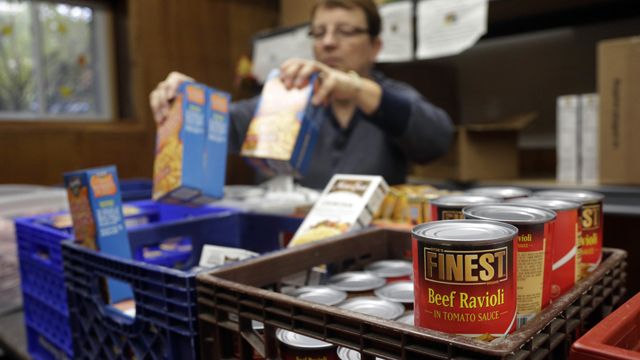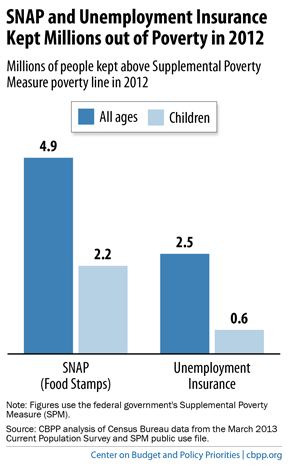
The New York Times has a heartbreaking story today on how cuts to the Supplemental Nutrition Assistance Program (SNAP) — or food stamps — are affecting millions of low-income American families for whom $10 or $20 makes a big difference. The decrease marks the largest across-the-board cuts since Congress first passed the Food Stamps Act in 1964 as part of Lyndon Johnson’s War on Poverty and affects 47 million people, or about one in seven Americans.
From the Times:
To poor families trying to stretch a couple hundred dollars into a month’s worth of groceries, all the talk about stimulus packages, farm subsidies and congressional politics means little. It is all about daily survival at the grocery store.
“We’ll be on our last $3 at the end of the month,” said Rafaela Rivera, 34, a home health aide who earns $10 an hour.
Ms. Rivera’s family of four saw their food stamps reduced by $36, to $420 a month. They pay rent and other expenses using her income and her husband’s disability check, and they supplement food stamps with bags of fresh vegetables, chicken and other groceries from a food pantry.
“It’s going to be hard,” she said. “Our last week is going to be tight tight.”
The Center for Budget and Policy Priorities, a nonpartisan think tank that focuses, among other things, on policy solutions to poverty, finds that SNAP is particularly effective at keeping American children in needy families out of poverty. In 2012, the program lifted 2.2 million children, and 4.9 million Americans total, above the poverty line.
At Esquire’s Politics Blog, Charlie Pierce asks why President Obama and others in Washington are still unable to discuss poverty. He takes aim at politicians in both parties and the “courtier press,” who are completely “insulated from the consequences of their actions” on the American people.
I ask this in all seriousness — when was the last time the president gave a speech about poverty? Not a section in the State of the Union. Not a speech about the embattled middle class. Not about how we all do better when all of us are doing better. Not about increasing opportunity. A full-throated, unequivocal speech simply about poverty, and about poor people, and about how it is a moral disgrace in the richest nation on earth to have as many people as we do who are forced to choose between meat and shelter. Let him give one now. I’ll buy a ticket.



